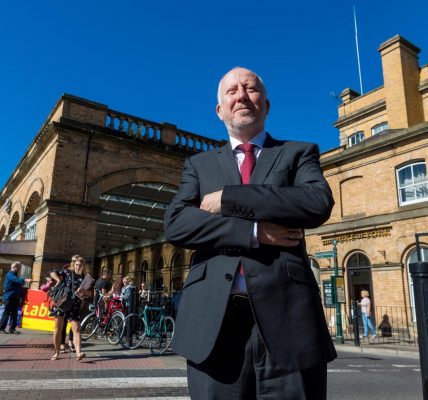Why Sir Keir Starmer's concerns over loan charge cannot be ignored – Greg Wright
PARLIAMENTARY committees play a vital role in subjecting controversial policies to formal examination.
That’s why everyone affected by the loan charge will have been heartened after listening to a public statement about the loan charge from Labour party leader Sir Keir Starmer.
When he appeared on Nick Ferrari’s show on LBC, Sir Keir was quizzed by a caller who said he was facing ruin from the loan charge.
Sir Keir told the listeners that one of his own constituents had been affected by the loan charge and he “felt very strongly the injustice that my constituent felt”.
He added: “I do think in this situation it is worth looking again at how this has impacted on people from years ago..one of the select committees should perhaps look at it..We will look at it.”
This will have been music to the ears of thousands of people who are facing the charge, and independent observers such as Mala Kapacee, the director of tax investigations consultancy, London Tax Network Ltd.
Ms Kapacee said: “Numerous individuals have been unfairly targeted by HMRC, for entering into arrangements they were advised were wholly legitimate.
“In the course of my work, I have become aware that some advisers had received confirmation from HMRC that the arrangements they promoted were not disclosable. The implication was the arrangements were legitimate and the promoters used HMRC’s confirmation to reassure the client (and others) of this.
“Since the inception of the loan charge, HMRC has consistently stated that it “has never approved these schemes and has always said they don’t work.”
She added: “This is directly contradicted by a letter from HMRC’s Anti Avoidance Group (Intelligence), which stated that it was “able to agree that this Hallmark does not apply and as a result the arrangements are not disclosable [under DOTAS]” on tax returns to HMRC.”
A copy of this letter, which is dated June 2012, has been seen by The Fond News.
Ms Kapacee added: “The fact that HMRC were looking into the arrangements shows at the very least, they were aware of them, had asked relevant questions and were satisfied that the arrangements did not meet any of the hallmarks of a tax avoidance scheme (otherwise the arrangements would have been disclosable).”
She added: “According to case law, where a taxpayer relied on HMRC advice, they are entitled to expect HMRC to stick to it despite that advice being incorrect. Why then in this case are
taxpayers being penalised for HMRC’s error? HMRC must be held accountable for its own advice.”
Her concerns about the loan charge are shared by the tax barrister Keith Gordon, who said: “In my 30 years of working in tax, the loan charge has been completely unprecedented and puts the entire tax system in a very poor light.
“Much of the criticism of the loan charge focuses on the fact that it effectively sidesteps a number of safeguards that are built into the tax code so as to protect taxpayers from belated tax demands.”
According to Mr Gordon, a specialist tax barrister at Temple Tax Chambers, the controversy surrounding the charge also highlights wider issues within the tax system that need addressing, such as the complexity of the tax code and tax legislation which is “also a problem because MPs usually fail to understand the real import of the laws that they are passing”.
Mr Gordon is also alarmed that enquiries into tax returns can be opened by “a bland letter saying that HMRC will ask questions at some future date and taxpayers may find that they hear nothing further for years (in some of these cases for over 10 years”.
With regard to the case cited by Ms Kapacee, HMRC said that, if the taxpayer would like to get in touch, HMRC will look into their case and see if it can support them.
In 2019, a review carried out by Sir Amyas Morse found the design and delivery of the loan charge didn’t get the balance right between tackling tax avoidance and protecting the rights of taxpayers and, in some cases, had caused serious distress to the individuals affected.
At the time, Sir Amyas said he was pleased to see the Government commit to act on the recommendations of his review, “bringing the loan charge back into line with the wider tax system”.
However, the concerns expressed by Sir Keir and two respected tax professionals cannot be ignored. It’s time for this matter to be placed in a prominent slot on the agenda at the Treasury Select Committee’s next meeting.
Support The Fond News and become a subscriber today. Your subscription will help us to continue to bring quality news to the people of US. In return, you’ll see fewer ads on site, get free access to our app and receive exclusive members-only offers. Click here to subscribe.










